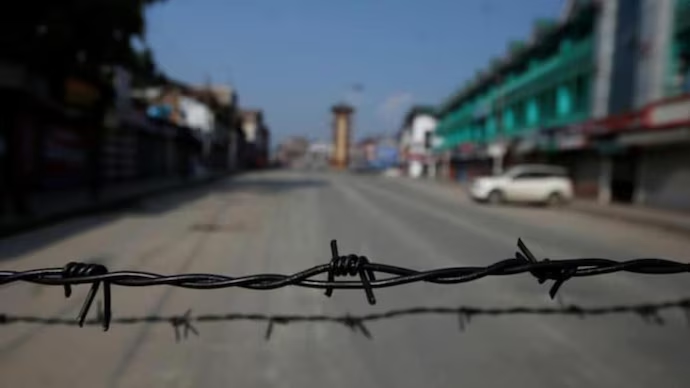Cold clarity dictates India’s course in Kashmir. The Narendra Modi government has methodically pursued a strategy to absorb the Himalayan territory as an internal matter, a choice made clear when Article 370 was revoked in 2019. The message was stark: “Kashmir is ours; do not involve outsiders.” George Orwell would note the Ministry of Truth spun this as development and stability, but the recent carnage in Pahalgam shows the limits of that logic.
For every plan achieved, there is pain inflicted. India’s long game has always been to decouple Kashmir from Pakistan, to turn it into another province of India where insurgency is managed. That was the theory. But as Frantz Fanon taught, one cannot impose nationhood by force without dire human costs.
The strategy is viciously simple: tighten control, silence dissent, change demographics, and then claim Kashmir as “settled”. Delhi has built roads, poured money into infrastructure, and relied on security forces. Above all, it has insisted any solution be handled bilaterally meaning with Pakistan. Yet this puzzle has no easy fixes.
The rebels do not vanish when gunships hover; they swell. Each protest is met by repression, each crackdown feeds resentment. The cost is measured in shattered homes and broken lives. Young Kashmiris grow up under curfew, tutored in fear rather than education. India’s very plea for economic progress rings hollow when journalists and school teachers disappear at night.
The implications for Pakistan are stark as well. Islamabad’s claims to Kashmir are its talisman, it has built national identity around those mountains and streams. But every flare-up in the Valley is another piece of international proxy that Pakistan must juggle. Pakistan’s reply has been to highlight the humanitarian toll, but at grave expense: border skirmishes, missile tests, and an economy increasingly shackled by war expenditures.
Read More: Pakistan, India Trade Barbs at UN Over Kashmir
Pakistan’s leaders invoke Kashmir as the “jugular vein” of their nation, as their founding father warned. Yet that drumbeat of confrontation drains them of focus on education, on industry, on the muted cry for justice within Baluchistan and Sindh. Each threat to walk away from treaties (like the Indus Waters Treaty after the latest violence, risks international isolation and economic ruin.
Still, somewhere in this maelstrom a shred of redemption lurks. The strategy → pain → cost cycle need not be endless. A way out must be sought in human terms. India must acknowledge that dignity cannot be won at the barrel of a gun. The world has watched Kashmir not be “stabilized” by direct rule, but rather held together by the political will to ignore Pakistan’s role while hoping violence will fade.
That experiment is unraveling. The plea now must be sincerity: dialogues that include Kashmiri voices, a return to the Shimla Agreement spirit of negotiation, and respect for basic rights. Pakistan too must consider practical restraint and investment in its own people, rather than seeing Kashmir only through a siege lens.
In cold light, both Delhi and Islamabad see that neither can score a decisive victory in Kashmir. The risk is escalation, or worse unraveling the fragile status quo with global consequences. Yet if there is hope, it lies in humanity. George Orwell might counsel India to shed triumphal rhetoric; Arundhati Roy would insist India remember the value of every Kashmiri life. For Pakistan, wise counsel would be to temper fiery speeches with building schools and hospitals, actions, not slogans, win respect.
The practical path forward is humble: quiet ceasefires, prisoner exchanges, water-sharing even amid tensions, and eventual talks that include ordinary Kashmiris. Dignity amid realpolitik that must be the guiding principle. Realpolitik can’t erase the human face of Kashmir, nor should it try. Both nations are nuclear-armed neighbors; a single spark could lay waste to decades of growth.
In the frozen mountains of Kashmir, there can be no winners in permanent war. If India’s long-term strategy is to secure its frontiers and ambitions, its wiser successors must realize that only peace and respect can truly stabilize them. The guardrails of humanity must not be forgotten in the shade of pragmatism. Otherwise, this hot conflict will threaten to consume them both.




